By the SMU Postgraduate Research Programmes Team
Samantha Sim is a 4th year PhD in Business (Organisational Behaviour and Human Resources – OBHR) student as well as an adjunct lecturer at the SMU Lee Kong Chian School of Business.
With so many things going for her, how exactly does she cope with it all? And what exactly drives her to just keep going?
In just 5 quick questions, Samantha takes us through about her PhD experience and gives would-be PhD students an uncensored view of the ups & downs, in’s & out’s of what it takes to do a PhD.
What is your research about?
In my dissertation, I explore some of the effects of feeling ‘compassion at the workplace’. There is a lot of evidence that compassion is beneficial; it focuses on how it benefits the person receiving compassion, but less is known on the effects of being compassionate. People immediately think compassion and business can’t go together, but I think that’s untrue. If you take examples of your own experiences such as when your co-worker’s mother passes away or when a colleague’s spouse has a heart attack, you don’t just dismiss it. At the root of it, we are people with feelings, and to dismiss this perspective from the organisational context makes little sense to me.
In addition to compassion, I work on ‘mindfulness at the workplace’. I researched it because I was practising it to manage my own relationship with stress. The funny thing about stress is that you don’t realise its effects because you’re in the middle of it, so mindfulness practice is a way to manage stress. As a PhD student, you have to be able to manage your emotions and stress well.
Why did you choose to do a PhD?
It’s probably because I enjoy reading and thinking about things. Also, I started learning and doing research during my undergraduate days as a Psychology student at SMU, and increasingly started to understand that research was something I was getting good at, and decided to stick to it. I feel that thinking about a relationship between things and coming up with ways to test them can be very interesting.
You did your undergraduate degree at SMU and studied for a Master’s degree in Europe. Why did you come back to SMU?
To be honest, at the time when I graduated from my Master’s by research programme, there was very little funding for research in Europe. Associate Professor Jochen Reb, my current supervisor, asked if I wanted to return to SMU because the OBHR department was starting a new PhD programme then. I had previously worked with Jochen and he has always been a very supportive mentor. I have heard of many horror stories about supervisors being unsupportive, and I could not imagine going through such an intellectually challenging experience. I think it’s really important to have a supportive supervisor over one who is not. The PhD journey is already challenging; you have to try to make it easier on yourself in every way you can.
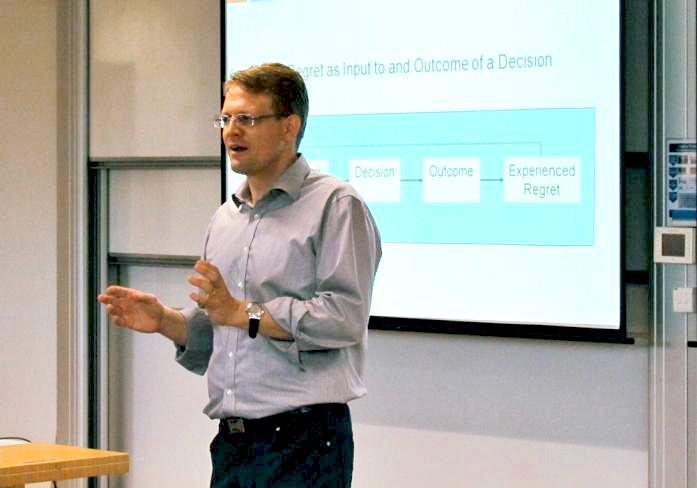
Associate Professor Jochen Reb
What has your PhD experience has been like?
The first two years were very intense, with a lot of readings during the coursework stage. There was a lot of tearing down and being critical about how someone else who has published in a top journal could have done better. It’s all very technical; you are taught research methods as well as many different topic areas.
At the end of two years, you sit for the Qualifying Examination. Details vary, but mostly it’s an essay writing exam which spans different topics and several hours (or sometimes, even days). This is usually followed by an oral component where you have to defend your work to a panel of professors.
Once you pass that stage, you really have to buckle down and get your research going. There’s a lot of autonomy in how you can spend your time, whether you are working from home or in school. Really, you have to create your own structure and manage your time. So, set up time, space and place for writing because there are no requirements like you would have in a traditional job. A professor could invite you to be on a project, help run a study, be his/her teaching assistant, or even run other administrative tasks. Or your classmate could ask you for feedback on an idea. Or another work-related stakeholder could ask you to do something for them. You would also need to manage your time to be with your friends, family and loved ones because you don’t have ‘real’ office hours. These take time away from the things that you ultimately will be evaluated on as a researcher—that is, a publication with your name on it. Some people are really strategic about what they say ‘yes’ to. I’d definitely recommend that!
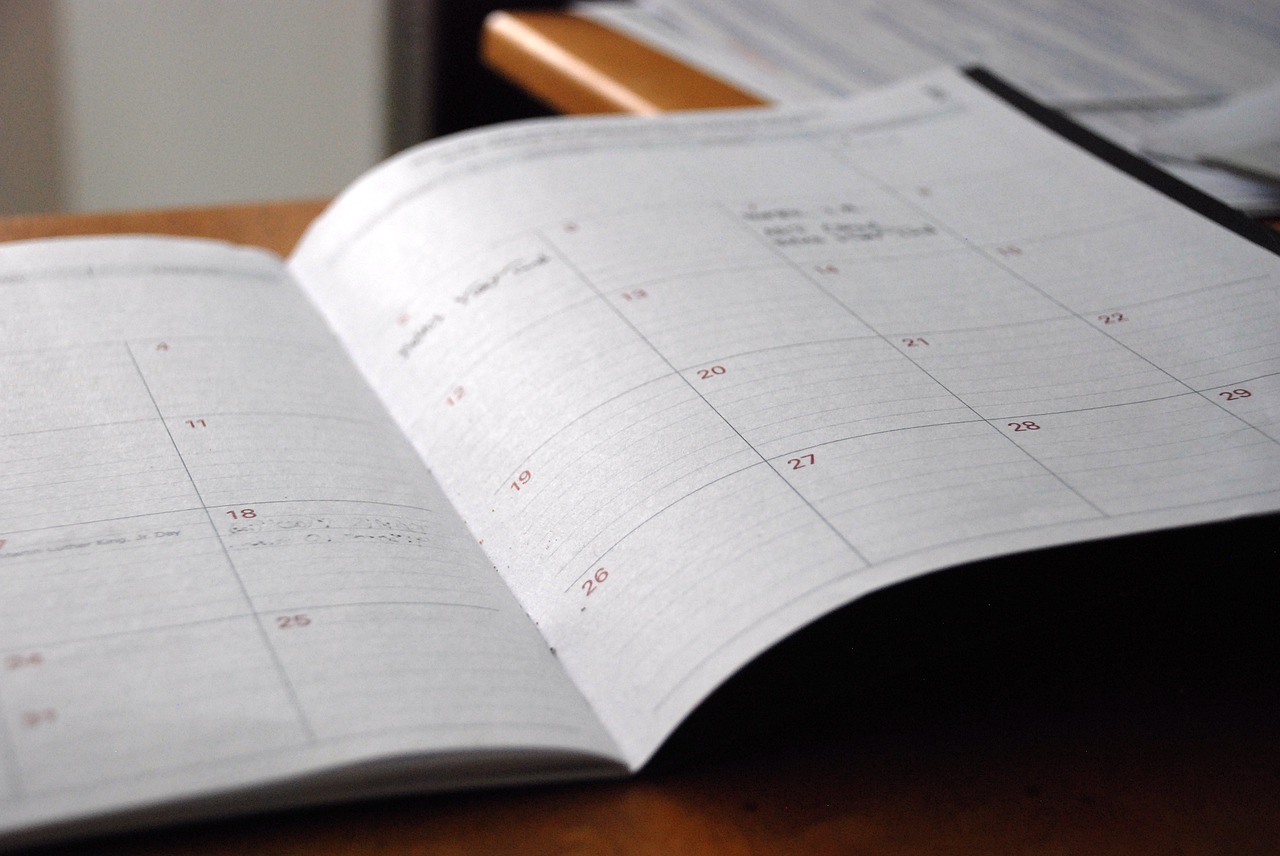
Organise your time
It is also very difficult to quantify your performance. You most definitely will have to read a large number of articles and chapters before you have a good grasp of things and can come up with an interesting and defensible research idea. But sometimes, the amount of time you spend on reading and writing doesn’t translate into a publication. And that’s difficult. You’ll feel stupid. But keep at it. At some point, the fog lifts and the light breaks through.
Through it all, your classmates are your buddies, because you don’t have all that much time (or energy) to see anyone else. Thankfully my cohort’s amazing! They are very supportive and helpful.
What skills have you have learnt?
Self-care skills are very important! I’ve learnt to take time to do things that are good for me, even if they aren’t related to work. It’s easy to sit at your desk and ‘stress-eat’ while working on the data, reading articles, writing and working on experimental materials. It’s going to be so easy to sleep irregularly because you have a deadline to meet. It’s very easy – especially if you’re introverted—to slip into a ‘semi-hermitic’ state where you don’t get much sunlight. All of this is compounded because you don’t have boundaries.
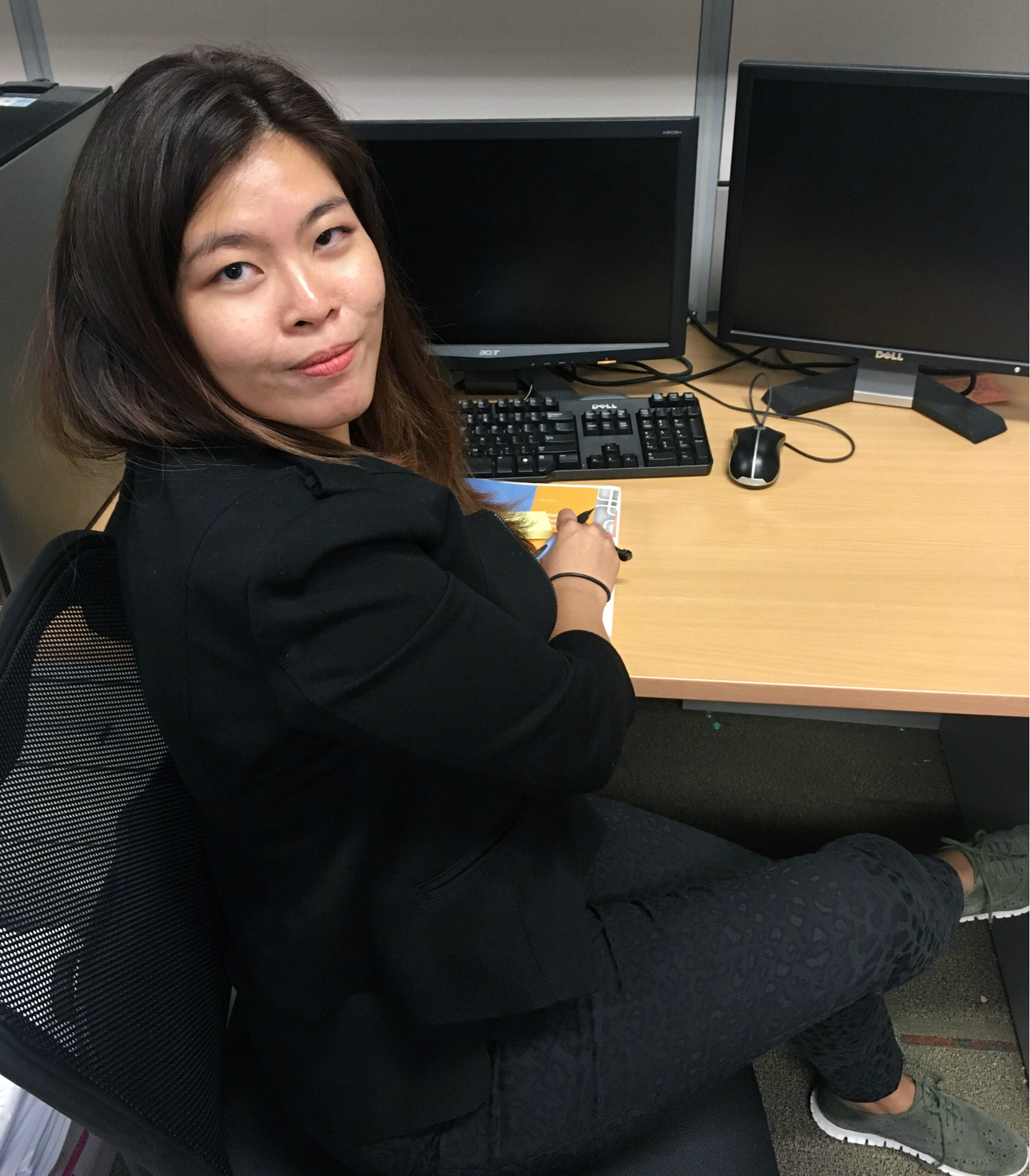
Samantha Sim at work
No matter how much you love your work, it’s not going to end, and it’s not going to love you back. You’re going to regret it eight kilogrammes and a weakened immune system later. You will not be productive if you don’t take care of yourself physically. Eat right, sleep well, get 45 minutes of physical activity three times a week, get some sunlight, be around people who care for you and talk to people about things other than work. It’s very important to have such good healthful habits!

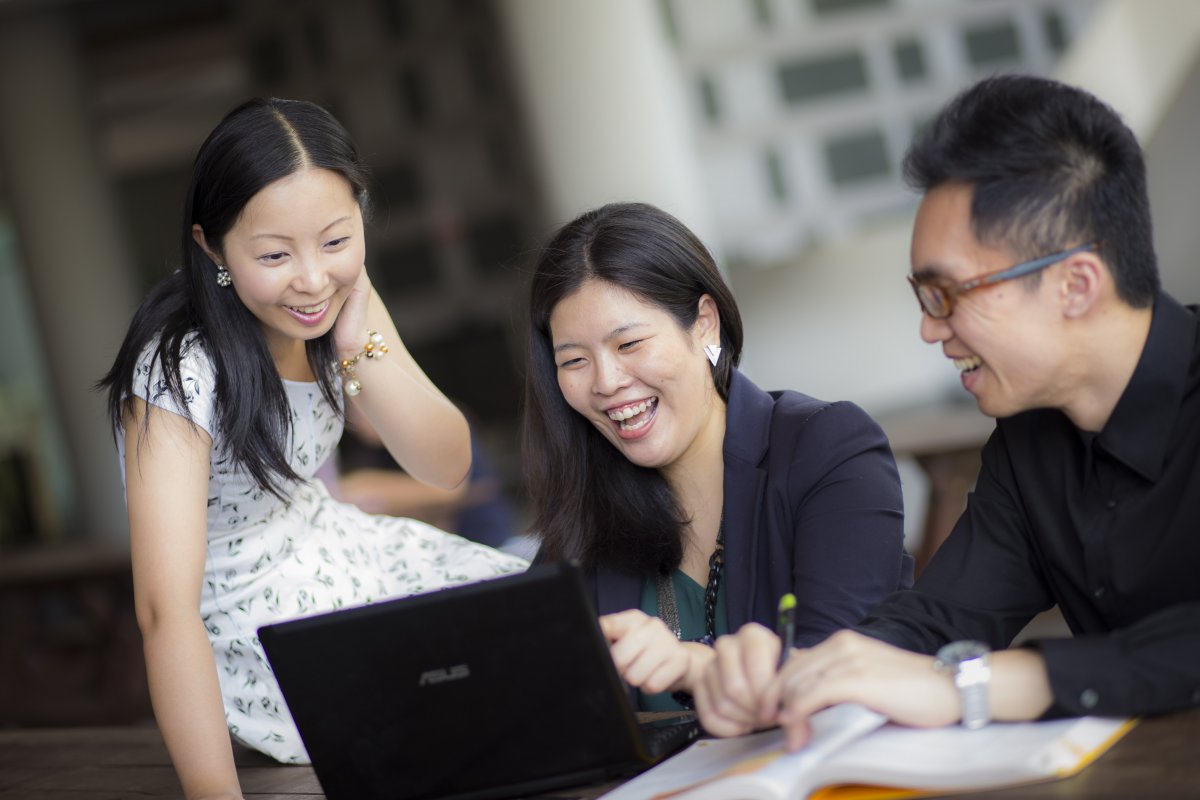



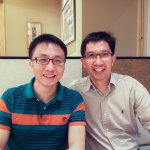

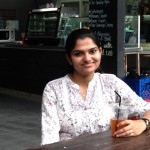




2 thoughts on “5 Quick Questions to Samantha”
The Best place for studying. thanks a lot !
Samantha the best place.